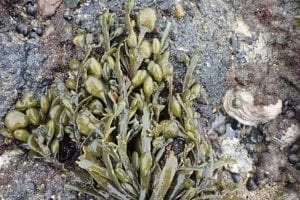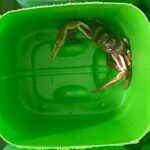Spicy curries, kebabs, Jamaican jerks, and savoury stews embrace goat meat as a central ingredient, and many countries have long regarded goat as a food staple. Now, perhaps as a by-product of the popularity of goat cheese, consumption of goat meat is on the rise in North America.
Here in Canada, production has been increasing at around 5% in recent years. Recognizing this, agricultural scientists are taking a greater interest in goat meat processing.
Goats, like their ruminant cousins—cattle, sheep, and deer—have a digestive system that engages a multi-chamber stomach and induces microbial actions that produce interesting smells and contaminating residue.
Like cattle, goats shed Escherichia coli (E. coli), a potentially toxic bacteria, with their excrement. As many as one in 10 farm goats could carry the bacteria that can, in some severe strains, induce bloody diarrhea and even kidney failure.
A team at Georgia’s Fort Valley State University (FVSU), an institution that promotes environmentally friendly, small-scale farming, may have found a simple technique for improving goat meat processing.
In a new study published in the Canadian Journal of Animal Science, the FVSU researchers report on a multi-faceted experiment featuring a brown seaweed extract (Ascophyllum nodosum) food supplement.
Some studies showed that the supplement reduced E. Coli in Angus steers and others suggested that compounds particular to the seaweed have antimicrobial properties. The seaweed also has a record of boosting the immune function of animals as well as the shelf life of fresh meat.

Ascophyllum nodosum, a type of brown seaweed | Wikimedia Commons
While these results held promise for decontamination strategies, the researchers at FVSU had to weigh the impact of the seaweed against established cleaning methods.
To do this, they designed an experiment using a randomized split-plot design. Thirty-two male goats, crosses of the Boer and Spanish breeds, were divided into eight separate pens. Half received the seaweed extract along with their regular diet in the two weeks prior to slaughter. The control group half did not.
These two groups were further divided such that half of the goats from each group underwent a three-stage spray washing with regular potable water and chlorinated water while the others were processed unwashed.
With data collection at each stage and with samples collected from internal fluids and external sites, the researchers were able to make a variety of comparisons and gauge the impact of each processing method.
Some results, such as the finding of reduced bacterial counts on spray-washed skin, confirmed previous studies, and some dietary treatments did not materially affect bacteria levels in the goat feces. However, E. coli counts of rumen stomach contents decreased with the seaweed extract food supplementation.
Another result stood out as novel and significant: “Not only was spray washing effective in reducing general contaminant levels but, when used in combination with the brown seaweed extract, it produced the lowest skin bacterial counts of any method measured,” said FVSU Professor Govind Kannan, one of the report’s authors.
“It’s an easy to implement technique and thus offers a viable approach for the small processing operations typical of goat meat production.”
And this, in turn, makes it easier to think about using goat in those curry and stew recipes.
Read the full study: Reduction of microbial contamination of goat meat using dietary brown seaweed (Ascophyllum nodosum) supplementation and chlorinated wash in the Canadian Journal of Animal Science.


